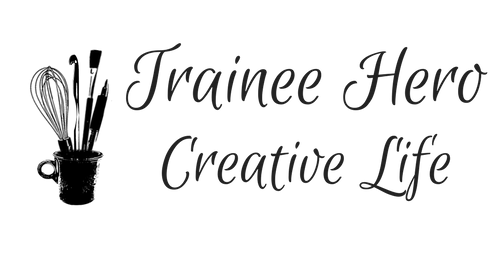 My name is Melissa and my grandma taught me how to crochet when I was 6. I have always loved the idea that you can turn a ball of yarn into a blanket, a scarf, a purse, a sweater, or whatever you can imagine! So many possibilities! Crocheting is my primary craft love and yarn my primary craft supply weakness. But I’ve also gotten caught up in polymer clay crafting, jewelry making with wire and beads, paper crafts, journaling, and sewing.
My name is Melissa and my grandma taught me how to crochet when I was 6. I have always loved the idea that you can turn a ball of yarn into a blanket, a scarf, a purse, a sweater, or whatever you can imagine! So many possibilities! Crocheting is my primary craft love and yarn my primary craft supply weakness. But I’ve also gotten caught up in polymer clay crafting, jewelry making with wire and beads, paper crafts, journaling, and sewing.
I haven’t always made time to do crafts. When I was a student and when I was a professor, I was always telling myself that when summer came, I would pick up that crochet project again. Or once these papers are graded, I can make some earrings from those new purple beads! Once my fall courses are prepped, I can get that yarn out and make a hat from this pattern! Unfortunately, I was abysmally slow at grading and course prep is never really finished (you just have to cut it off at some point). The crafty creative side of me didn’t get to come out to play very much.
Now that I am a wife and a mommy, I have realized that maintaining a better work-life balance is really important to me. In addition to a career change, a big part of creating that balance for myself has involved making crafts and crochet a part of my life every day. This blog allows me to do that, and hopefully will help support my yarn and craft supply weakness in the process. (Plus, once you have a lot of yarn and other craft supplies, you also need storage furniture to keep it all organized.)
The name Trainee Hero comes from my favorite book, Fire and Hemlock by Diana Wynne Jones. Polly meets Tom when she is a child and they begin to make believe that they are in training to become heroes, as neither of them really know much about being a hero. In the process of learning, Tom writes to Polly,
The thing I hadn’t bargained for about hero business…is how terribly embarrassing it is…I realized in one blinding moment that when they speak of heroes having “iron nerve,” they do not mean they can spring forward and seize the bridle of a wild horse. That is child’s play–sorry, Polly, I mean quite easy by comparison really. No, what they mean by “iron nerve” is that same as “a thick skin.” You have to learn not to notice how silly you feel. (Fire and Hemlock, pg 1o5)
Nearly anything you do in public that is important to you will probably require an iron nerve. Sharing one’s crafts, process, and writing means learning not to notice how silly you feel.
